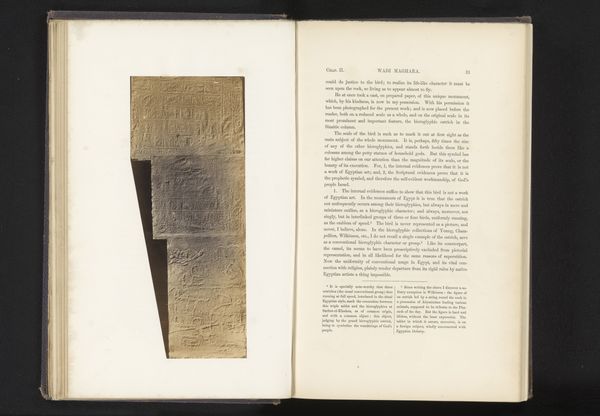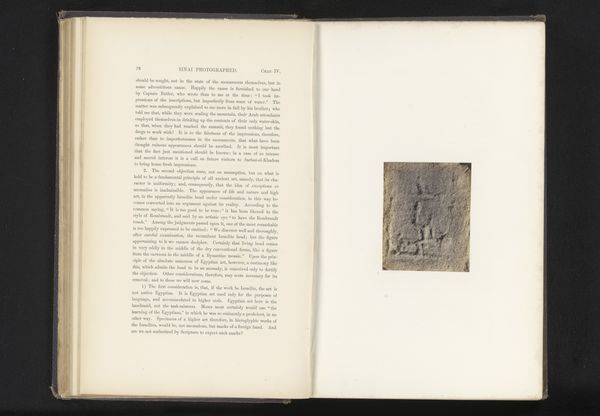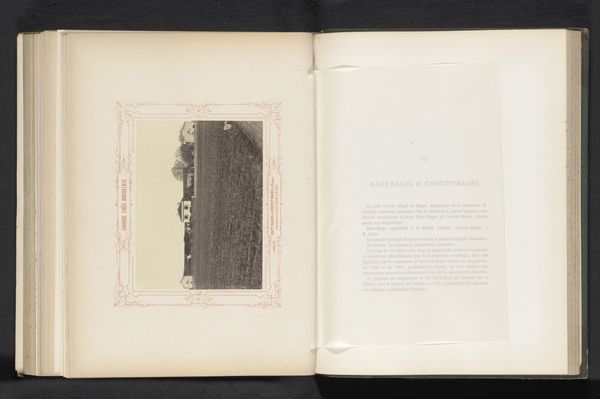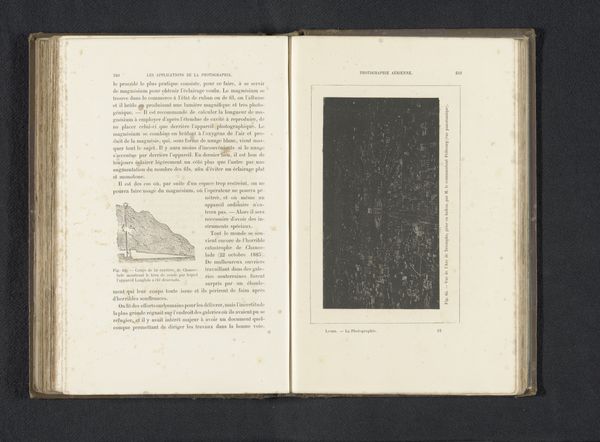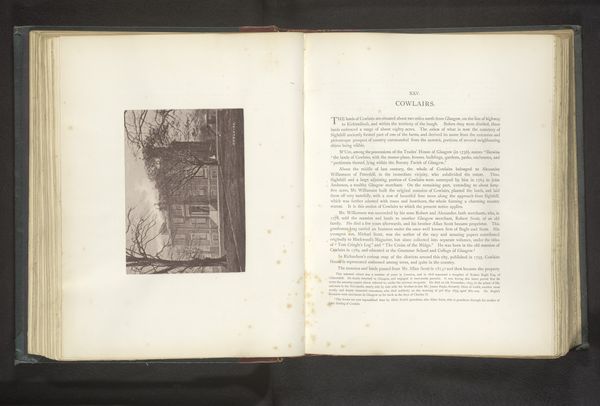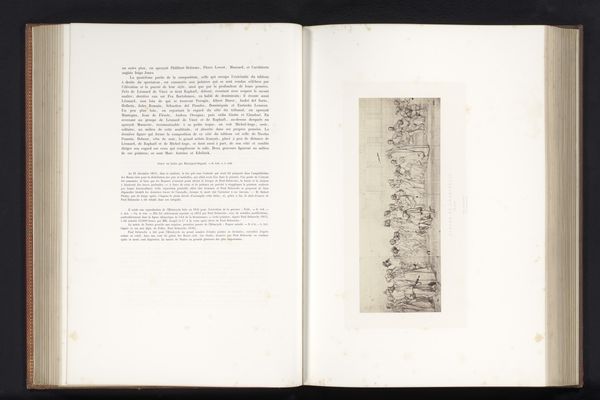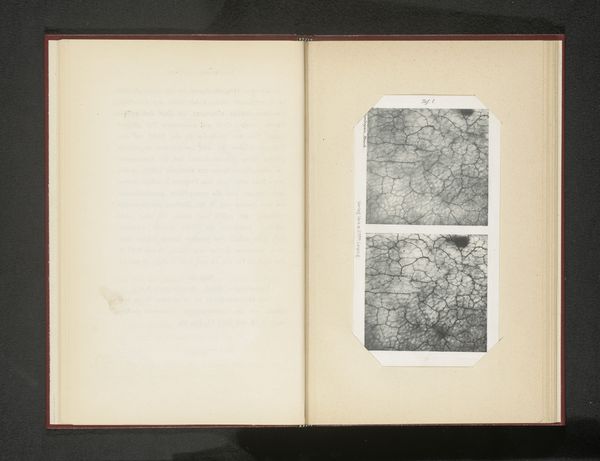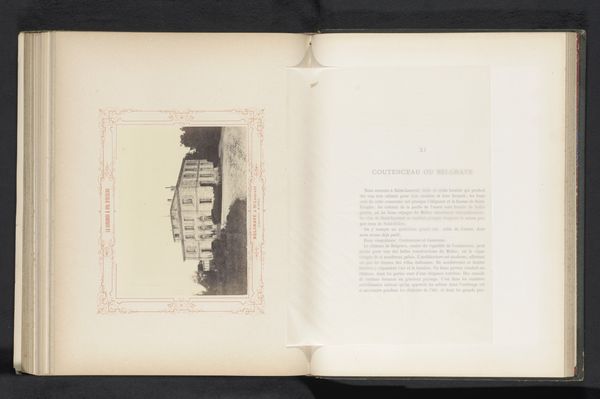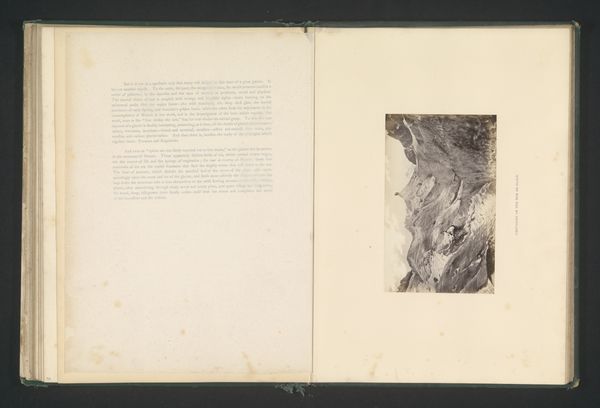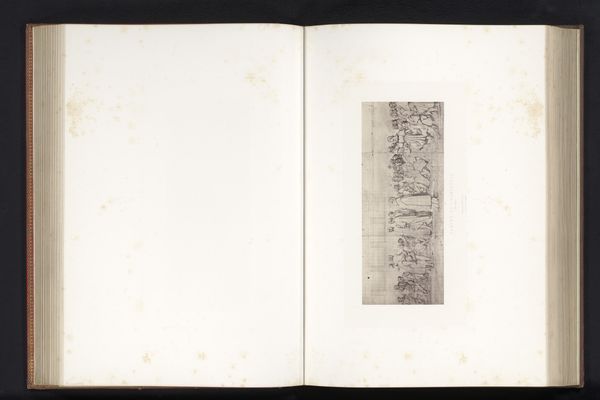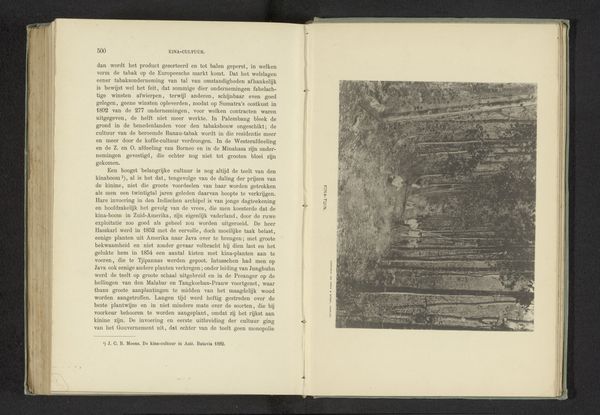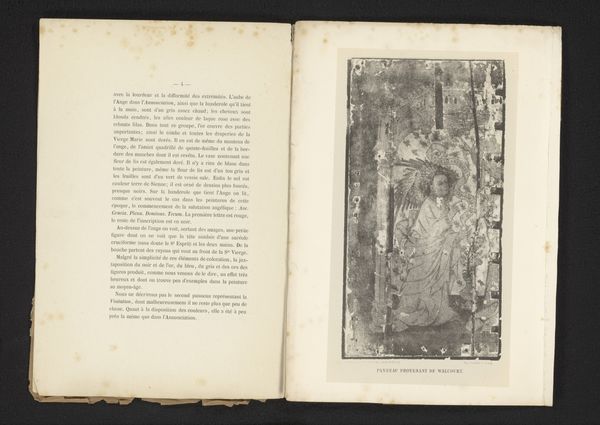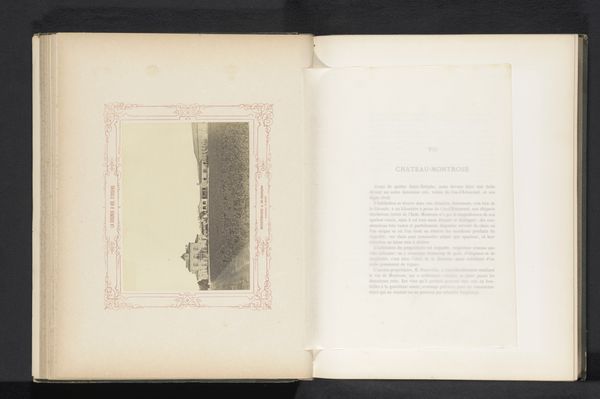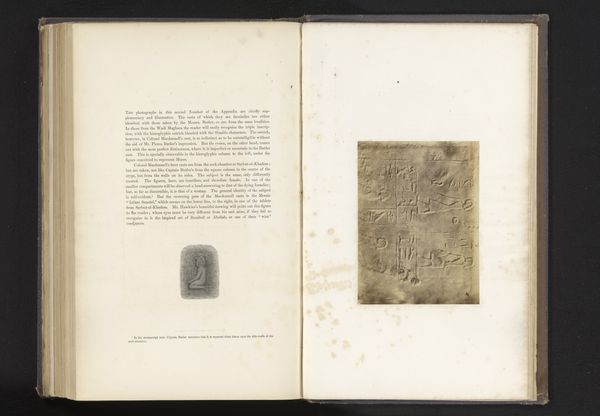
Gipsen afgietsel van een tablet met hiërogliefen uit Sinaï, links een detail gemarkeerd before 1862
0:00
0:00
print, photography, gelatin-silver-print
#
narrative-art
# print
#
ancient-egyptian-art
#
photography
#
geometric
#
ancient-mediterranean
#
gelatin-silver-print
#
history-painting
#
academic-art
Dimensions: height 144 mm, width 119 mm
Copyright: Rijks Museum: Open Domain
Editor: So, this is a gelatin silver print from before 1862, titled "Gipsen afgietsel van een tablet met hiërogliefen uit Sinaï, links een detail gemarkeerd" by A.J. Brown. It shows a page from a book displaying a photograph of a tablet covered in hieroglyphs. What strikes me is how this photograph almost makes the hieroglyphs feel ghostly or ethereal. How do you interpret this work? Curator: What immediately captures my attention is the photograph as an act of translation and preservation within a specific historical context. This print exists within a nexus of colonial exploration, archaeological discovery, and the Victorian obsession with categorizing and understanding "the Other." The marked detail, isolated and framed, speaks volumes about the Western gaze dissecting and reassembling cultural artifacts. Consider the power dynamics at play – whose voices are amplified, and whose are silenced in this process of documentation and interpretation? Editor: That's fascinating! I hadn't really considered the colonial aspect so explicitly. So, the very act of photographing and highlighting a specific section is imbued with a certain power dynamic? Curator: Precisely. Think about how this photograph participates in constructing a narrative about ancient cultures, often framed through a Western lens. How might contemporary critical theory challenge the seemingly objective nature of this photographic record? Editor: So, rather than just seeing a historical document, we should be questioning the motivations and biases inherent in its creation and dissemination. I'll definitely look into this further. Thank you! Curator: Absolutely. Art, even in its documentary forms, always invites us to interrogate the layers of meaning and the social forces shaping its existence. It's a good point of entry to understand historical perspectives.
Comments
No comments
Be the first to comment and join the conversation on the ultimate creative platform.
